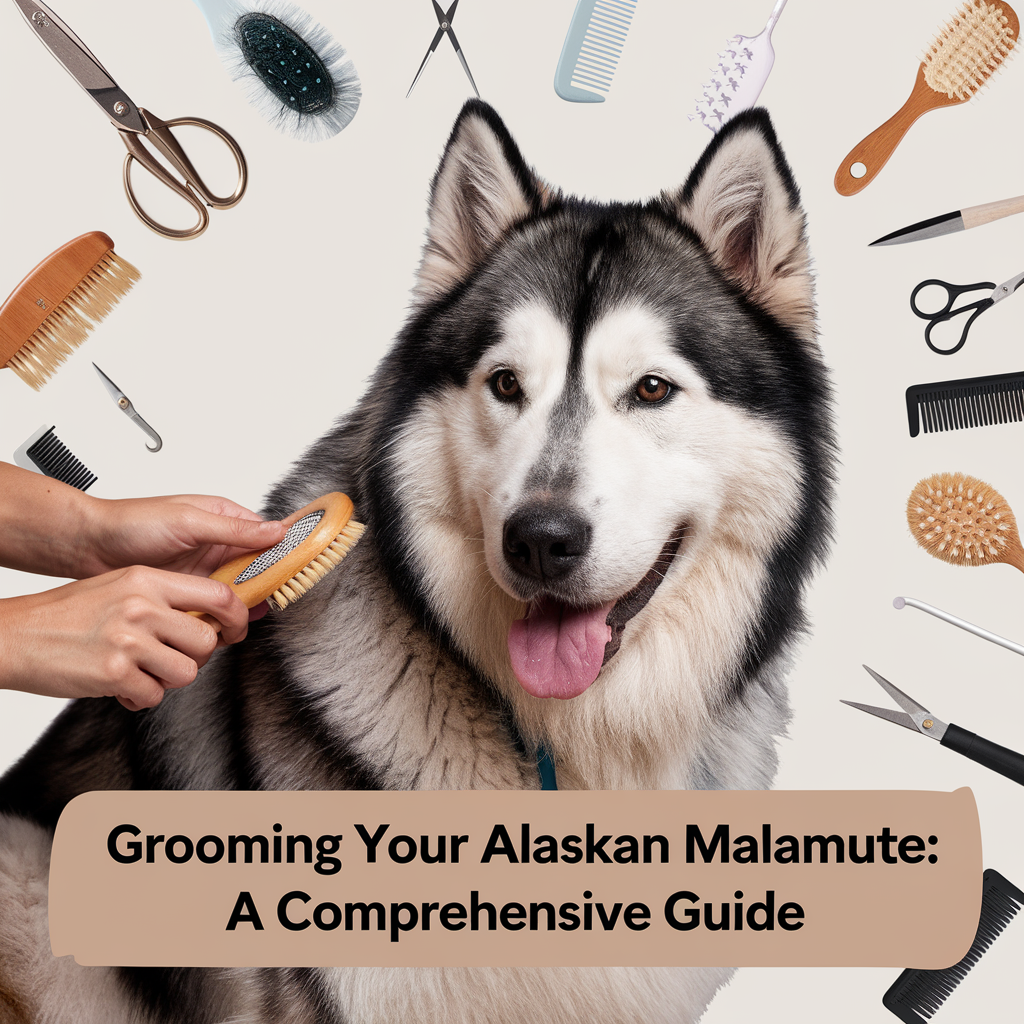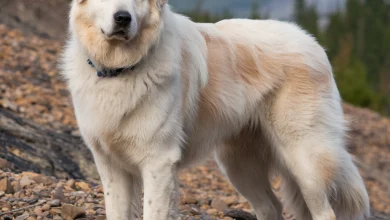Grooming Your Alaskan Malamute: A Comprehensive Guide

The Alaskan Malamute is a magnificent breed known for its strength, loyalty, and striking appearance. With their thick double coat, these dogs are well-suited for cold climates but require regular grooming to maintain their health and beauty. This guide will provide you with essential tips and techniques for grooming your Alaskan Malamute to keep them looking their best.
Why Grooming is Important
Regular grooming not only keeps your Malamute looking great but also plays a crucial role in their overall health. Grooming helps:
- Prevent Matting: Their thick fur can easily mat, leading to discomfort and skin issues.
- Reduce Shedding: Regular brushing minimizes shedding and keeps your home cleaner.
- Monitor Health: Grooming sessions provide an opportunity to check for any signs of skin problems, parasites, or other health issues.
- Bonding Time: Grooming is an excellent way to strengthen the bond between you and your dog.
Grooming Essentials for Alaskan Malamutes
- Brushing:
- Frequency: Brush your Malamute at least once a week, increasing to several times a week during shedding season (spring and fall).
- Tools: Use a slicker brush and a wide-toothed comb to effectively remove loose fur and prevent mats. An undercoat rake is also useful for reaching the dense undercoat.
- Technique: Start by brushing the outer coat and then work your way to the undercoat. Be gentle around sensitive areas like the ears and belly.
- Bathing:
- Frequency: Alaskan Malamutes do not need frequent baths. Bathe them every 2-3 months or as needed if they get particularly dirty or develop an odor.
- Shampoo: Use a mild dog shampoo that won’t strip their coat of natural oils. Avoid human shampoos, as they can be harsh on their skin.
- Drying: After bathing, thoroughly rinse out all the shampoo and dry your Malamute with a towel. You can use a blow dryer on a low, cool setting to speed up drying if your dog is comfortable with it.
- Nail Trimming:
- Frequency: Trim your Malamute’s nails every 3-4 weeks, or as needed. If you can hear their nails clicking on the floor, it’s time for a trim.
- Tools: Use dog nail clippers or a grinder to safely trim the nails. If you’re unsure about trimming, consult a professional groomer or veterinarian.
- Technique: Be cautious not to cut too close to the quick (the pink area inside the nail), as it can cause bleeding and pain. If you do accidentally cut into the quick, have styptic powder on hand to stop the bleeding.
- Ear Care:
- Frequency: Check your Malamute’s ears weekly for dirt, wax buildup, and signs of infection.
- Cleaning: Use a cotton ball or soft cloth dampened with a veterinarian-recommended ear cleaner. Avoid using cotton swabs, as they can damage the ear canal.
- Teeth Brushing:
- Frequency: Aim to brush your Malamute’s teeth at least 2-3 times a week to prevent dental issues.
- Tools: Use a dog-specific toothbrush and toothpaste. Never use human toothpaste, as it can be toxic to dogs.
- Technique: Start by allowing your dog to get used to the toothbrush and paste, then gradually introduce brushing in a gentle, circular motion.
Seasonal Considerations
- Shedding Season: During spring and fall, your Malamute will shed their undercoat. Increase the frequency of brushing during these times to manage loose fur and prevent matting.
- Cold Weather: Malamutes have a thick coat that protects them from cold weather. Avoid excessive grooming during winter, as this can reduce their insulation and expose them to cold temperatures.
Conclusion
Grooming your Alaskan Malamute is essential for their health and well-being. By establishing a regular grooming routine, you can keep your dog looking great while ensuring they remain comfortable and healthy. With love, patience, and the right tools, grooming can be a rewarding experience for both you and your Malamute, enhancing the bond you share with your furry companion.



